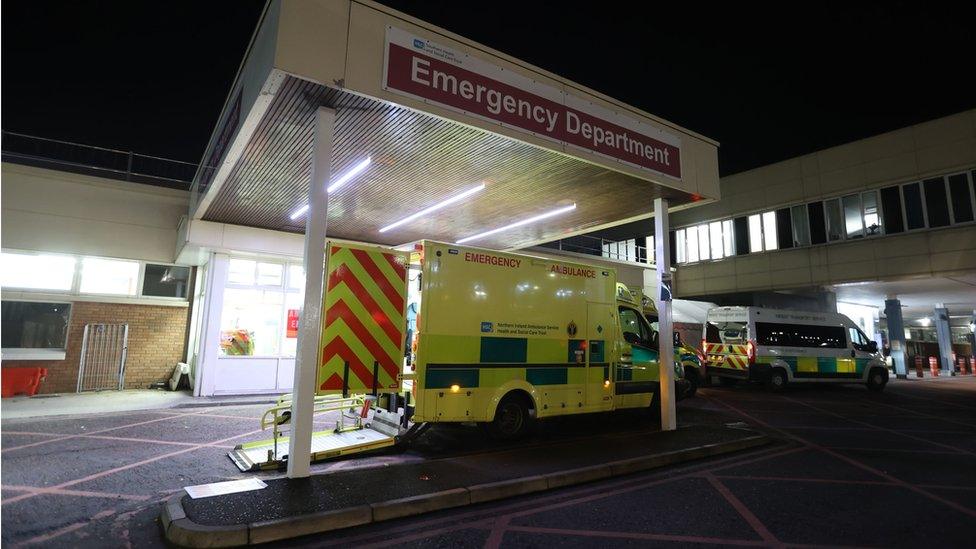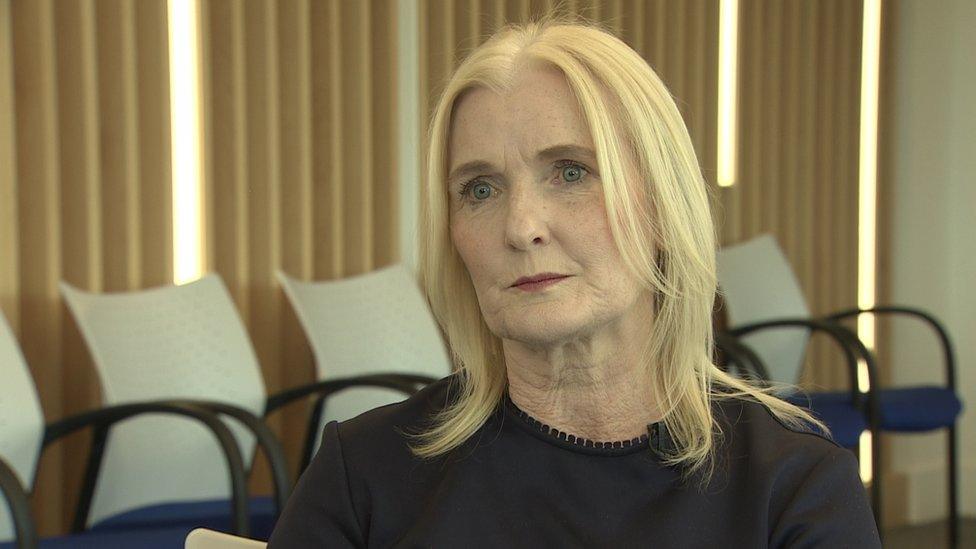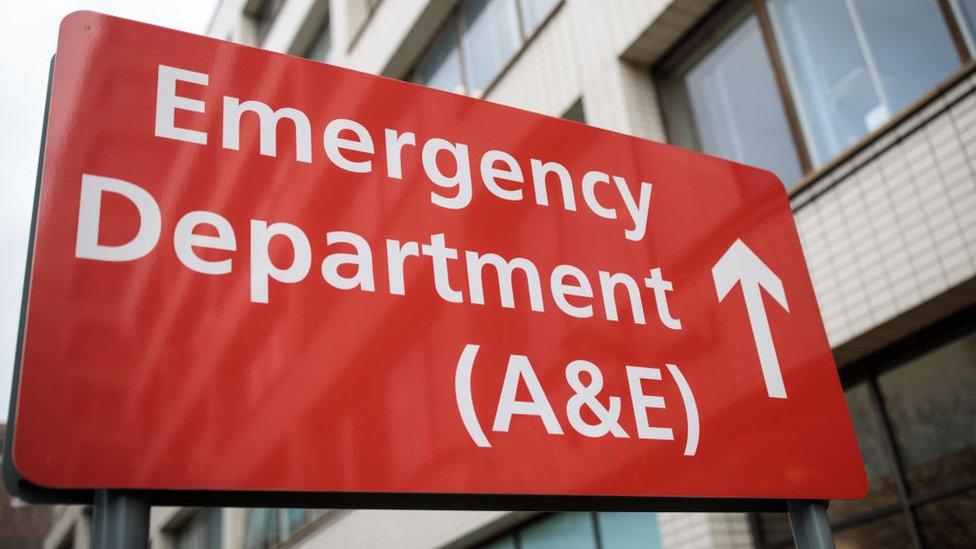Number of patients waiting over 12 hours in emergency departments rises
- Published

The total number of people going to emergency departments in June 2023 rose to 69,123 - up 6.6% on the year before
The number of patients who waited more than 12 hours in emergency departments (EDs) in Northern Ireland increased by almost 9% between June 2022 and June 2023.
The government's target for emergency care is that no patient should wait longer than 12 hours.
Tuesday's figures from the Department of Health show that, in June 8,918, people waited for more than 12 hours.
This accounted for 12.9% of attendances that month.
In the same month last year, the number of people waiting was 8,193.
The total number of people going to emergency departments in June 2023 rose to 69,123 - an increase of 6.6% on the year before.
More than 12,750 people used PhoneFirst or an urgent care centre without going on to attend an emergency department.
In June 2023, almost one in six (16.3%) of those who attended EDs had been referred by a GP, up from 15.6% in June 2022.
Last month, the Department of Health said targets set out in a major plan for cutting Northern Ireland's healthcare waiting lists will not be achieved.
A framework published in 2021 proposed a £700m investment over five years to deal with lengthy waits for patients needing assessments or surgery.
But officials have said a lack of cash has led to "significant uncertainties" about implementing that plan.
'Demand outweighs capacity'
Northern Ireland has the worst waiting list figures in the UK.
On Tuesday, a spokesperson for the Department of Health said that "hospitals across Northern Ireland remain under pressure, with too many patients experiencing prolonged waits in emergency departments".

"The Department of Health is acutely aware of these pressures, with similar challenges faced by EDs in other jurisdictions," they added.
"Unfortunately, the situation is reflective of the current pressures facing the entire health and social care system, as demand for care outweighs capacity.
"Staff in emergency departments make every effort to keep waiting times as short as possible.
"Patients are treated according to clinical priority with a focus on the most severe and life-threatening conditions."
The Department of Health added that it consulted on the urgent and emergency care review during spring 2022.
"Following ministerial agreement, the department established an implementation board to oversee implementation of the strategic priorities included in the review.
"These include the establishment of urgent care centres across all trusts; greater use of rapid access clinics and ambulatory care as alternatives to ED; the introduction of a regional 111 phone first service; greater focus on performance and capacity; and improving intermediate care to treat patients in their home, as an alternative to hospital admission."
Difficult decisions
In the absence of a functioning power-sharing government at Stormont, Northern Ireland Secretary Chris Heaton-Harris set the 2023-24 budget for the region in April.
Speaking at the time, he said departments faced difficult decisions "in order to live within the funding available".
The Department of Health is receiving £7.25bn for day-to-day spending this year - that is similar to the amount it received last year.
Related topics
- Published7 July 2023

- Published15 June 2023

- Published27 April 2023
